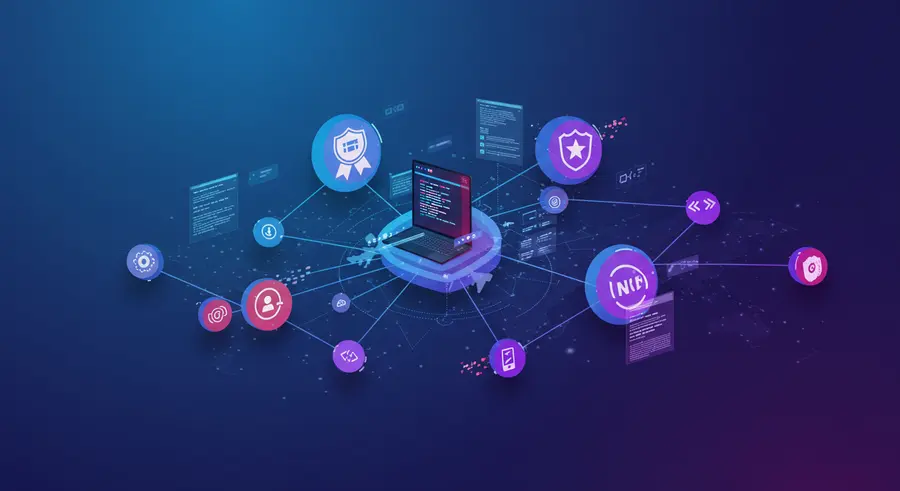Gamifying Open Source Contributions: Fueling Community and Code
Open source software is the backbone of modern technology, driven by the passion and collaborative spirit of countless developers worldwide. However, attracting and retaining contributors, especially for less glamorous tasks or new projects, can be a significant challenge. This is where gamification steps in, offering a powerful framework to enhance engagement, motivate contributors, and foster a more vibrant and productive open-source community.

Why Gamify Open Source?
At its heart, open source thrives on voluntary contributions. Gamification can tap into intrinsic human desires for achievement, recognition, and social connection, transforming routine coding tasks into engaging challenges. By integrating game-like elements, projects can:
- Increase Contribution Volume: Encourage more developers to get involved, from bug fixes to new features.
- Improve Code Quality: Motivate thorough reviews, robust testing, and adherence to best practices.
- Foster Community Loyalty: Build stronger bonds among contributors and maintainers.
- Onboard New Contributors: Make the initial learning curve less daunting and more rewarding.
- Recognize Talent: Provide visible acknowledgment for valuable efforts, which can be crucial for career development.
Core Gamification Mechanics in Open Source
Several game mechanics can be effectively applied:
- Points and Experience (XP): Award points for various actions—submitting a pull request, fixing a bug, writing documentation, reviewing code, or even helping others in discussions. These points can accumulate into XP, allowing contributors to "level up."
- Badges and Achievements: Recognize specific milestones or skills. Examples include "First Pull Request," "Documentation Champion," "Bug Hunter Elite," "Core Contributor," or "Mentor Badge" for helping new members.
- Leaderboards: Display top contributors based on various metrics (e.g., most merged PRs, most active in discussions, most lines of code). While motivating for some, leaderboards should be used carefully to avoid demotivating others.
- Quests and Challenges: Define specific, time-bound tasks or "bounties" with clear objectives and rewards. This can guide new contributors to impactful areas or encourage work on critical, but often overlooked, tasks.
- Progression and Levels: A clear path for contributors to advance within the project, perhaps gaining more permissions or responsibilities as they contribute more.
Implementing Gamification Effectively
Successful gamification in open source requires thoughtful design:
- Define Clear Goals: What specific behaviors do you want to encourage (e.g., more bug fixes, better documentation, faster reviews)?
- Transparency: Clearly communicate the rules of the "game" and how points/badges are earned.
- Fairness: Ensure the system is perceived as fair and equitable. Avoid systems that can be easily gamed or that disproportionately reward one type of contribution over others.
- Integration: Integrate gamified elements naturally into existing workflows (e.g., GitHub actions, project management tools).
- Recognition Beyond Points: While points are good, combine them with genuine appreciation and opportunities for growth within the community.
- Feedback Loops: Provide immediate and meaningful feedback for actions. This is where systems that offer quick insights, much like an AI-powered market insights platform provides financial analysis, can be invaluable for developers to track their progress and see their impact.
Several platforms and tools, often built on top of Git hosting services like GitHub or GitLab, can help implement these mechanics. These range from simple bots that award badges to more complex systems tracking contribution statistics.
Challenges and Considerations
- Maintaining Intrinsic Motivation: The primary motivation for open-source contributors is often intrinsic (e.g., learning, contributing to a cause). Gamification should augment this, not replace it, to avoid "overjustification."
- "Grinding" and Unhealthy Competition: Systems that only reward quantity might lead to low-quality contributions or foster an overly competitive environment. Balance quantity with quality metrics.
- Initial Setup and Maintenance: Designing and maintaining a robust gamification system requires effort.
- Exclusion: Ensure the system doesn't alienate contributors who prefer to work quietly or focus on less visible tasks.
Looking Ahead
The future of open source gamification is bright, with potential for more sophisticated systems: personalized challenges, AI-driven mentorship matching based on contribution patterns, and even token-based rewards that offer real-world utility within the open-source ecosystem. As open source continues to grow, gamification will play an increasingly vital role in cultivating thriving, productive, and sustainable communities.
For more insights on effective development practices and community building, consider exploring resources like The Linux Foundation for extensive open source materials, Open Source Guide for starting your journey, and DEV Community for a vast network of developers sharing knowledge and code.